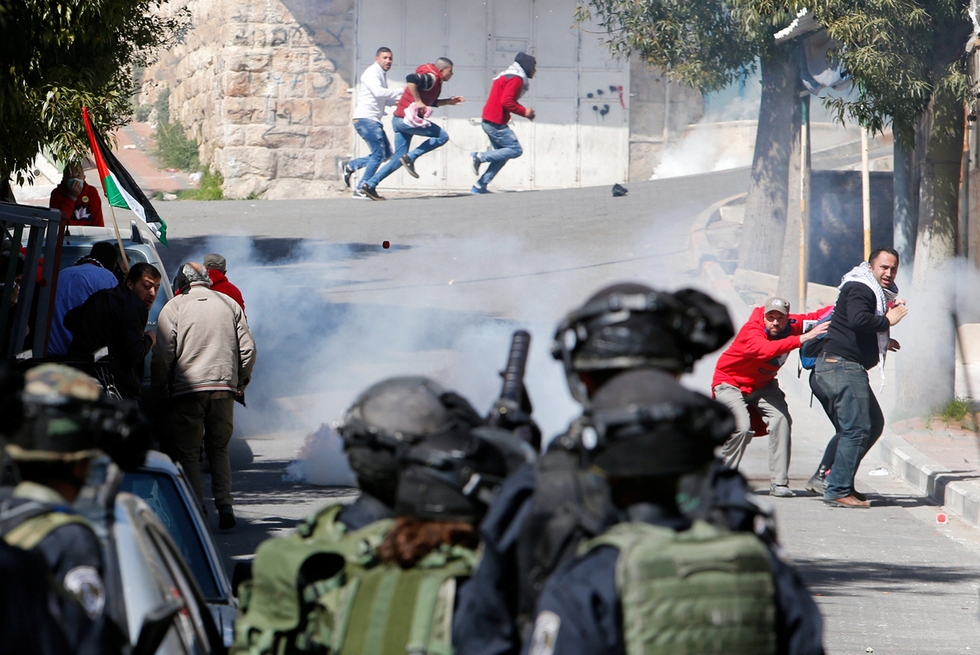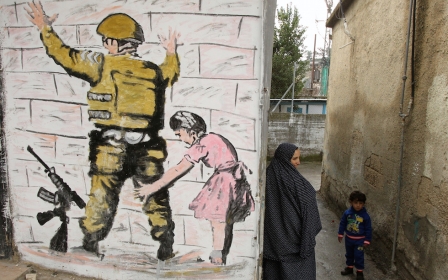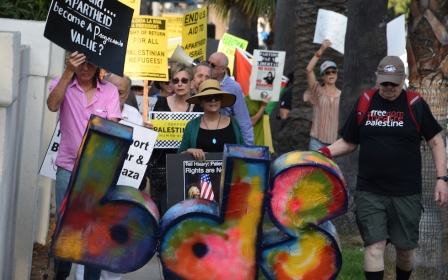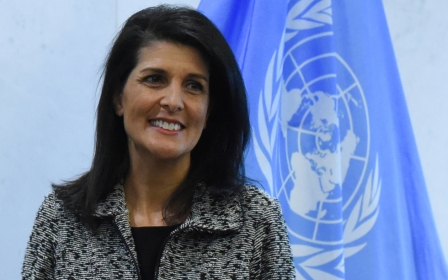Israel 'effectively bars compensation' for Palestinians: Report

Israel has made it nearly impossible for Palestinians to claim compensation for injuries caused by Israeli authorities, a new report says, reflecting "how little value it places on the lives, bodies and property of Palestinians living under its control".
The report, by B'Tselem, traces the exemptions Israel has introduced over the years to make it increasingly hard for Palestinians to file claims.
Such claims, it documents, have gone down 95 percent between 2002 and 2016, from an average of 300 lawsuits a year to 18 last year.
The situation at hand is not that of two equal parties at war, but rather a state of occupation
- B'Tselem
Compensation paid out by Israel has also decreased, from an average of $5.7m a year between 1997 and 2001, and an average of $1m a year between 2012 and 2016.
The legal definition of "wartime activity" has been broadened, the report says, a classification under which Israel does not pay compensation, because, as the law is based on the "assumption that warfare entails risk and damages that are substantially different than those encountered during everyday circumstances."
"The law does not establish the precise meaning of 'warfare activity,' leaving interpretation to the courts," states the report, 'Getting off Scot-Free: Israel's Refusal to Compensate Palestinians for Damages Caused by Its Security Forces'.
Wartime activity?
"Residents of the Occupied Territories who wish to sue the state for damages now face almost insurmountable obstacles," the report says. "The rare cases in which claimants do manage to file a lawsuit stand virtually no chance of winning."
Ata Muhammad Ata Sabah has been paralysed from the waist down since he was shot by an Israeli soldier at the age of 12 in 2013. He was trying to retrieve his school-bag, which had fallen behind a fence next to his school.
My dream ... was destroyed by the Israeli sniper who paralysed me
- Ata Muhammad Ata Sabah
"For a whole year I was on tranquilizers because I couldn't come to terms with being paralysed," he told B'Tselem.
"I was depressed and started psychological therapy after I got home. I just couldn't bear my situation and wished I was dead."
The Palestinian Authority has paid for some physiotherapy for Muhammad, and his father has paid for an elevator for their house, with some help from an NGO.
"My dream of being a vet is buried. It was destroyed by the Israeli sniper who paralysed me."
The right to compensation is enshrined in international law, but Israel is only providing an illusion of this judicial procedure, the report says.
"The state does not offer Palestinians harmed by its security forces a genuine opportunity to file for damages in Israeli courts, offering them no more than the illusion of being able to do so."
Speaking to Middle East Eye, B'Tselem's director Hagai al-Ad said that this was yet another aspect of the occupation which simultaneously doesn't cost Israel anything, while making life more comfortable for Israelis.
"In any situation where you don't have access to justice, not by the courts system or the political channel or the civil channel, it is pushing people to deal with the situation in other ways," he said.
Another argument that the state has used, over years of legal wrangling, is that "each party must assume the damage it incurs."
However, B'Tselem argues, Israel cannot have it both ways.
"According to Israel, the Palestinian Authority does not constitute a state – yet when it comes to paying compensation, it considers it as such," it writes.
"The situation at hand is not that of two equal parties at war, but rather a state of occupation," it adds.
Contempt for life
"Even after the Oslo Accords Israel remains the occupying power in the West Bank."
And in Gaza, Israel still controls many aspects of daily life, it adds.
"This policy reflects Israel's profound contempt for the life, safety and property of Palestinians in the Occupied Territories," the report concludes.
"The state has also made it clear that, for its part, it bears no responsibility for the consequences of its control over the Palestinian population, both as the occupying power in the West Bank and as an external entity exerting control over the Gaza Strip."
The Israeli defence ministry has not responded to a request for comment.
New MEE newsletter: Jerusalem Dispatch
Sign up to get the latest insights and analysis on Israel-Palestine, alongside Turkey Unpacked and other MEE newsletters
Middle East Eye delivers independent and unrivalled coverage and analysis of the Middle East, North Africa and beyond. To learn more about republishing this content and the associated fees, please fill out this form. More about MEE can be found here.




